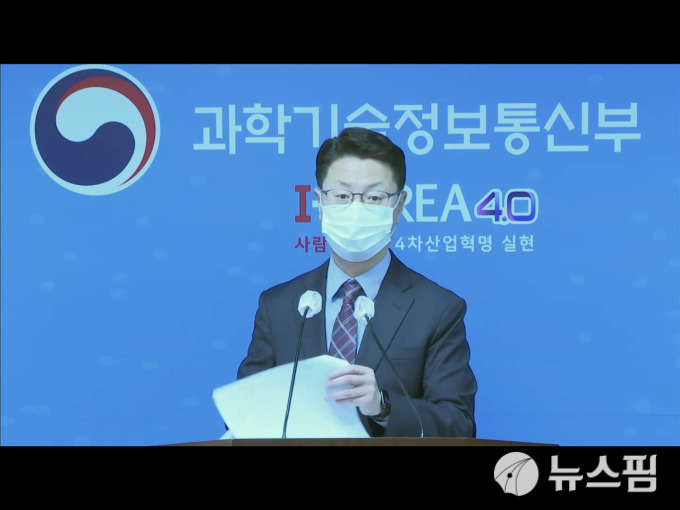Ministry of Science and ICT’s ‘5G network policy plan’ confirmed the 5G strategic plan
28.9~29.5㎓ band priority supply…Naver·Sejong Telecom interest
[서울=뉴스핌] Reporter Nae Nae Gyeong = In the future, private companies other than telecommunications companies such as SK Telecom, KT, and LG Uplus can also receive frequency allocation. This will end the carrier’s frequency monopoly system, which has been maintained for 25 years since 2G frequencies were allocated to mobile carriers in 1996.
The government plans to promote the convergence of 5G and other industries by supplying 5G frequencies to private companies.
On the 26th, the Ministry of Science and ICT established a ‘5G-specific network policy plan’, confirmed and announced by the 5G+ Strategy Committee. A 5G-specific network is a 5G network that can be used only in a specific area (buildings, factories, etc.), and is a customized network specialized for the services to be introduced in that area.
 |
| [서울=뉴스핌] Reporter Nae Nae-kyung = Jin-bae Hong, the Ministry of Information and Communication Policy Officer, held a prior briefing at the Seoul Government Complex on the 25th and explained the 5G network policy. 2021.01.26 [email protected] |
This policy plan was prepared to intensify digital innovation in the entire industry by converging 5G, the core infrastructure of the Digital New Deal, with other industries.
In a preliminary briefing held at the Seoul Government Complex the day before, the communication policy officer of the Ministry of Science and ICT, Hong Jin-bae, said, “Introducing a market competition system to 5G specialized networks, supplying broadband frequencies for 5G specialized networks, and linking public projects to create initial demand He emphasized that the goal of this policy is to create a specialized network ecosystem.
Currently, foreign countries such as Germany, Japan, and the UK allow the establishment and operation of a ‘5G specialized network’ by separately allocating a mobile communication frequency to a demanding company or a third party. However, it was pointed out that there is a high possibility that related investments will be contracted or delayed due to lack of competition, since only mobile carriers assigned frequencies are available in Korea.
Under the judgment that there is a risk of preoccupying the global 5G B2B market, the government expanded the main body of building 5G specialized networks to’regional (local) 5G operators (demand companies, third parties, etc.)’ other than mobile carriers to promote and regulate market competition. It plans to promote the activation of 5G specialized networks by resolving uncertainties.
First of all, in order to induce the establishment of a competitive 5G-specific network, the 5G-specific network establishment and operation entity will be expanded to’regional 5G operators (demand companies, third parties, etc.)’ other than mobile carriers. The type of’local (local) 5G operator’ is classified into the building entity and the service provider, and according to the type, a 5G specialized network is introduced by reporting as a self-network installer or registering as a key communication service provider.
Broadband frequencies (28GHz band, 600MHz width) are supplied for 5G specialized networks. 5G-specific network frequencies are first supplied in the 28.9-29.5㎓ band (600MHz width) adjacent to the 28㎓ band frequency of the existing mobile communication service provider, and the 6㎓ or less band should be reviewed for securing additional B2B frequencies through regional joint use. Plan.
The 5G-specific network frequency supply method is supplied by a frequency designation method in case of an in-house network installer according to the type of local 5G service provider, and through a frequency allocation procedure in case of registration as a key communication service provider. For the supply of frequency by region, detailed supply plans such as the allocation method, cost calculation method, and interference resolution plan will be prepared by March.
Communications Policy Officer Hong Jin-bae draws a line in revealing the specific company name, and explained, “Currently, system integration (SI) companies, Internet service companies, and small and medium-sized communication companies are interested in 5G specialized networks as demand companies.” In the industry, it is known that Naver and Sejong Telecom are interested in 5G specialized networks. The Ministry of Science and ICT expects that when the policy plan is officially announced, general demand companies will also review related projects in various ways.
It will also support demand creation in the early stages of the market through demonstration and pilot projects. While discovering and applying service models using 5G-specific networks in the public sector such as ports and defense, it will also review and promote the demonstration of 5G-specific network equipment.
Accelerate the B2B terminal development business through cooperation with domestic large and small companies and establish a virtuous cycle ecosystem for terminal manufacturing. It plans to support expanding research and development (R&D) and securing references to strengthen competitiveness of core equipment and parts.
Communications Policy Officer Hong Jin-bae said, “We will continue to strengthen the competitiveness of the domestic 5G B2B industry by creating a foundation for various operators to participate in the 5G market with the 5G-specific network policy plan. Through this, we will create a new 5G convergence industry and ultimately “We will do our best to become an opportunity to expand globally.”
